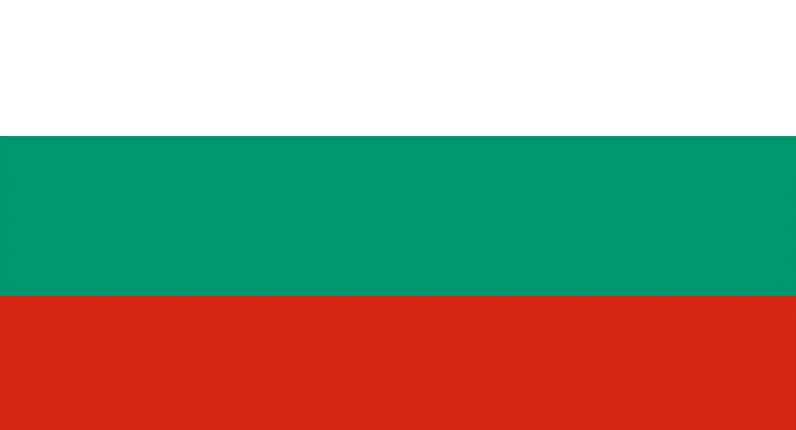Bulgaria Visa Guide

Comprehensive Guide for Bulgarian Visa
If you’re planning to visit Bulgaria, it’s important to understand the visa requirements and how they align with the Common Visa Policy of the European Union. As of 31 March 2024, Bulgaria has fully adopted the Schengen acquis, which means that the visa rules for Bulgaria have changed significantly. In this guide, we will cover everything you need to know about obtaining a Bulgarian visa, including the types of visas, the application process, and the recent changes regarding Bulgaria’s inclusion in the Schengen Area.
Bulgaria Visa Policy and the Schengen Area
As of 31 March 2024, Bulgaria has begun issuing Schengen visas, allowing holders to travel throughout the Schengen Area for up to 90 days within a 180-day period. While Bulgaria has aligned its visa policy with the Schengen rules, it’s important to note that some restrictions remain, particularly regarding land border checks, which the European Council will decide on in the near future.
Types of Bulgarian Visas
There are three main types of visas available for those wishing to travel to Bulgaria:
Visa A (Airport Transit)
A Visa A is required for passengers transiting through a Bulgarian airport on their way to a non-Schengen country.
Visa C (Short Stay for Transit or Planned Stay)
The Visa C allows for short stays of up to 90 days within a 180-day period. This visa is suitable for tourism, business trips, or short-term visits to family or friends.
Visa D (Long Stay)
A Visa D is intended for individuals planning a long-term stay in Bulgaria. This visa is most often used for work, study, or family reunification.
Visa Requirements for Bulgaria
When applying for a Bulgaria Visa, you must meet several criteria and submit the required documents.
Key Requirements:
- A valid travel document (passport) that is no older than 10 years and valid for at least three months beyond your intended stay.
- Two blank visa pages in your passport.
- A fully completed visa application form.
- A passport-sized photo.
- Proof of travel medical insurance covering at least €30,000 for medical expenses and repatriation.
- Proof of accommodation in Bulgaria (e.g., hotel reservation or invitation letter).
- Round-trip flight tickets or proof of financial means.
- Additional documents depending on the type of visa (e.g., work permit, proof of family ties).
Bulgarian Visa Application Process
Visa applications for Bulgaria can be submitted no earlier than three months before the intended date of travel. The process involves:
1. Filling out the application form
Complete the visa application form in typed letters. You can download the form from the website of the Bulgarian consulate or embassy in your country.
2. Submitting your application
Applications must be submitted in person or through an authorized agent, and a personal interview may be required for long-stay visas (Visa D). Minors must have their applications submitted by their legal representatives.
3. Processing time
The processing time for a Bulgarian visa typically ranges from 10 to 30 days, depending on the type of visa and the applicant’s country of origin.
Bulgaria and the Schengen Area
As of 31 March 2024, Bulgaria is a part of the Schengen Area, meaning Schengen visas issued by Bulgaria or any other Schengen country allow for free movement within the Schengen Zone for up to 90 days in any 180-day period.
However, it is important to note that while Bulgaria has implemented air and sea border checks in accordance with the Schengen acquis, checks on land borders will still be subject to approval by the European Council.
Schengen Visa for Bulgaria
Starting 31 March 2024, Bulgaria will issue uniform Schengen visas, which are valid for travel across all Schengen countries. If you already hold a national visa issued by Bulgaria prior to this date, it will still be valid for travel to Bulgaria, Romania, and Cyprus, but not other Schengen states.
For those traveling after 31 March 2024, a Schengen visa issued by Bulgaria will allow you to visit any Schengen country for short stays.
Bulgarian Visa for Long-Stay and Residence Permits
Holders of long-stay visas or residence permits issued by Bulgaria will be able to travel freely within the Schengen area for short stays (up to 90 days in any 180-day period) starting from 31 March 2024.
Frequently Asked Questions
Is Bulgaria in Schengen?
Yes, as of 31 March 2024, Bulgaria has fully implemented the Schengen acquis and is now part of the Schengen Area, though internal land border checks may still apply.
Do I Need a Visa for Bulgaria?
Whether you need a visa depends on your nationality. If you are from a country that requires a visa to enter the Schengen Area (as outlined in Regulation (EU) 2018/1806), you will need a visa to visit Bulgaria.
How Long Does Bulgaria Visa Take?
The processing time for a Bulgaria Visa generally takes between 10 to 30 days, depending on the visa type and the country from which you are applying.
Is Bulgaria Part of Schengen?
Yes, as of 31 March 2024, Bulgaria is part of the Schengen Area, meaning that it issues Schengen visas and allows travelers to move freely across other Schengen states.
What Documents Are Required to Visit Bulgaria?
To visit Bulgaria, you will need a valid passport, a visa (if required), proof of accommodation, travel medical insurance, and return tickets. Additional documents may be required depending on the visa type and purpose of your visit.
By following the requirements and procedures outlined in this guide, you can ensure a smooth visa application process for Bulgaria. Whether you’re visiting for tourism, business, or a long-term stay, understanding the Bulgarian visa policy will help you plan your trip efficiently.
